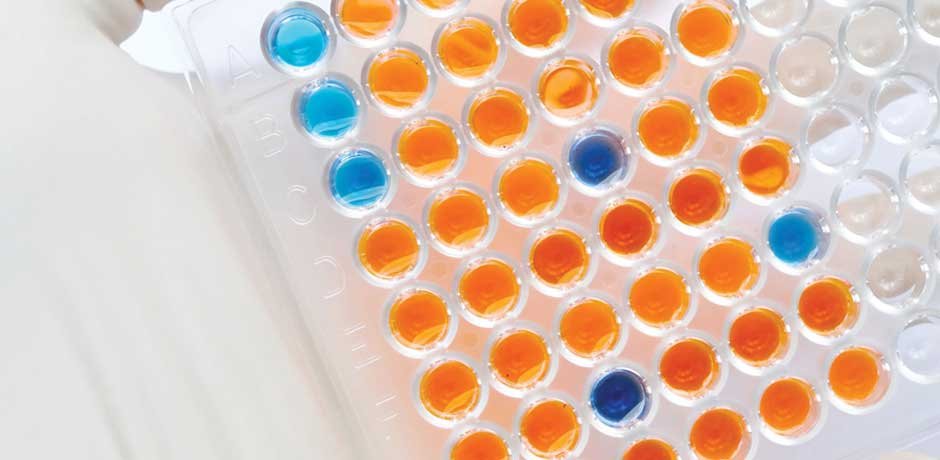ELISA is the abbreviation for enzyme-linked immunosorbent assay; a procedure scientists and researchers use to detect the presence and concentration of an antibody or antigen in a sample. An antibody is a protein molecule the body produces in response to a foreign substance, the antigen. The ELISA method is widely used for the detection and diagnosis of various diseases, vaccine development, and testing for pregnancies and food contamination.
The ELISA Kit Method of Testing
Lab technicians carry out the ELISA test in a polystyrene plate with 96 or 384 wells coated with a particular antibody or antigen known to be able to bind to a specific protein or antibody present in the sample. While there are different types of ELISA tests, generally, the process comprises binding the proteins or antibodies and immobilizing them. The next step is coating all the wells unbound with the protein or antibody and repeatedly washing the wells to remove non-specific binding. After doing it, technicians add a substrate to generate a calorimetric signal. Undertaking the above steps, results in a colored end-product, with the intensity of the color directly corresponding to the concentration of the analyte in the original sample.
The ELISA method is popular because of the several advantages it offers. The reagents used in testing have a long shelf life, are easy to handle, and have no radiation risks. According to Medicine Net, it is extremely sensitive and flexible and permits the testing of multiple samples quickly. In addition to the possibility of customization of ELIZA kits for specific applications, they require little to no training to perform the test. Moreover, the tests are economical.
Applications of ELISA Test Kits
Diagnosing diseases: The ELISA testing method has proved valuable in detecting various diseases in humans and animals. The healthcare industry commonly performs the ELSA test using the COVID-19 IGG IGM kit to detect infectious diseases like COVID-19. ELISA test kits are also widely used to detect many other diseases like HIV, cancer, hepatitis, and autoimmune diseases and to carry out testing for immunology, endocrinology, cytokines, diabetes, thyroid function, cardiac disease, and many more.
Detecting cancer: The ELISA test process is a powerful tool for healthcare personnel to detect early-stage cancer. The efficacy of the results and the fast results, allow patients to receive treatment faster, increasing their chances of survival. The ELISA test can detect several cancer biomarkers, and this list is growing rapidly.
Vaccine development: The ELISA test method is valuable in new vaccine development. Scientists typically use serum samples from an immunized human or animal to detect the antibodies present that work against specific antigens. The method includes injecting specific antigens into the host organism in a controlled environment and analyzing the results. However, due to the multi-dimensional nature of the human immune system response, selecting the assay appropriate for developing the vaccine can be hard says CTN News.
Pregnancy testing: The ELISA test detects the presence of the hCG hormone in the urine or blood sample to confirm pregnancy. The ELISA pregnancy test is highly-specific and sensitive and can detect very low HCG hormone levels. The kits are easy to use, require no training, and give quick results.
Conclusion
Immunoassays using ELISA kits offer complex detection and diagnostics with great accuracy and speed. Given the increasing number of health and infection threats facing the world, ELISA kits will face sustained demand by the healthcare industry.






